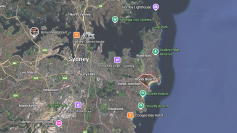In a stark escalation of the ongoing conflict in Ukraine, Russian President Vladimir Putin confirmed the use of an experimental intermediate-range ballistic missile, the Oreshnik, during a strike on the city of Dnipro. Speaking during an unannounced televised address, Putin declared the missile strike as a response to recent Ukrainian attacks on Russian territory carried out with Western-supplied long-range weaponry. The Russian leader asserted that Moscow "reserves the right" to target Western countries that provide such military support to Kyiv.
"The deployment of the Oreshnik system was a response to U.S. plans to produce and deploy intermediate- and short-range missiles," Putin said. "In the event of an escalation, Russia will respond decisively and symmetrically." The missile strike, carried out on Thursday, targeted a defense facility in Dnipro. According to Ukrainian officials, the attack caused significant damage to an industrial enterprise, two residential houses, nine garages, and a rehabilitation center for people with disabilities. Local authorities reported two injuries, and fires broke out at the impact site.
While initial reports from Ukraine suggested that an intercontinental ballistic missile (ICBM) might have been used, U.S. officials clarified that the weapon was likely an intermediate-range ballistic missile (IRBM), which has a range of 3,000 to 5,500 kilometers. Putin emphasized that the missile was not armed with a nuclear warhead, although the Oreshnik is designed to carry such payloads. Experts noted the missile's advanced capabilities, including a multiple independently targetable reentry vehicle (MIRV) payload, which is typically associated with nuclear-capable systems. Fabian Hoffmann, a missile technology researcher at Oslo University, remarked, "The range isn't the important factor. The fact that it carried a MIRVed payload is much more significant for signaling purposes and is the reason Russia opted for it."
Putin also issued his most explicit threat yet to Western nations, warning that Russian missiles could be used against countries enabling attacks on Russian targets. "Russia reserves the right to use weapons against targets in countries that permit their weapons to be used against Russian targets," he said. He accused the United States of planning to deploy medium- and short-range missiles in Ukraine, a claim that has not been substantiated by evidence.
Ukrainian President Volodymyr Zelensky responded by accusing Russia of using Ukraine as a "testing ground" for its advanced weaponry. He condemned the strike on Dnipro, noting the harm inflicted on civilian infrastructure, including a facility for people with disabilities. Zelensky described the attacks as further proof of Putin's disregard for international norms and human lives.
The Kremlin claimed that advance warnings were issued to allow civilians to evacuate areas targeted by the missile strike. However, this assertion has done little to mitigate the alarm raised by such escalatory actions. The strike on Dnipro came days after Ukraine reportedly used U.S.-supplied ATACMS and British Storm Shadow missiles to target facilities in Russia's Kursk and Bryansk regions. Putin labeled these strikes as provocations and justification for Moscow's latest actions.
The West has yet to formally respond to Putin's claims regarding the deployment of the Oreshnik missile. However, the move underscores growing tensions and raises concerns about the potential for the conflict to expand beyond Ukraine's borders. The use of advanced missile systems and direct threats against Western nations indicate a dangerous new phase in the war.






